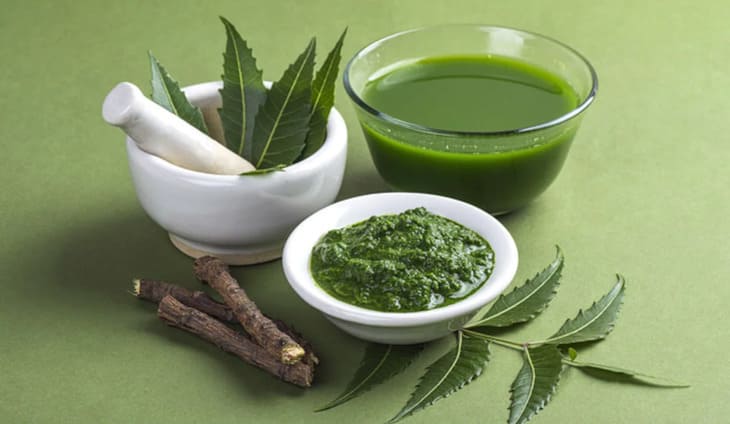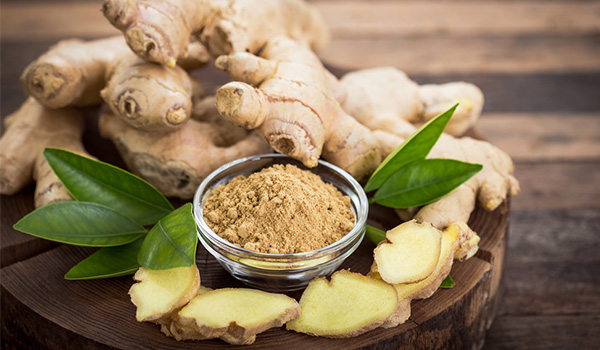Top 10 Ayurvedic Herbs Benefits and side effects

The Ancient Wisdom of Ayurveda
Ayurveda, the ancient Indian system of medicine, has been a treasure trove of natural healing for thousands of years. At the heart of this holistic approach to health and wellness lie Ayurvedic herbs, nature’s powerful remedies that have stood the test of time. These herbs are not just plants; they are living embodiments of healing energy, each with its unique properties and benefits.
In this comprehensive guide, we’ll explore the top 10 Ayurvedic herbs, delving into their remarkable benefits and potential side effects. Whether you’re a long-time enthusiast of natural medicine or just beginning to dip your toes into the world of Ayurveda, this article will provide you with valuable insights into these incredible botanical wonders.
1. Ashwagandha: The Stress-Busting Powerhouse
Benefits of Ashwagandha

Ashwagandha, often referred to as Indian Ginseng, is one of the most popular Ayurvedic herbs, and for good reason. This adaptogenic herb has been used for centuries to help the body manage stress and promote overall well-being. Some of its key benefits include:
- Reducing stress and anxiety
- Improving cognitive function and memory
- Boosting immune system function
- Enhancing physical performance and endurance
- Supporting healthy sleep patterns
Recent studies have shown that Ashwagandha may also help in reducing cortisol levels, the body’s primary stress hormone. This makes it an excellent natural option for those looking to manage chronic stress and its related symptoms.
Potential Side Effects
While Ashwagandha is generally considered safe for most people, it’s important to be aware of potential side effects:
- Mild digestive upset in some individuals
- Possible interactions with medications for thyroid disorders
- May cause drowsiness when taken in large doses
It’s always best to consult with a healthcare professional before adding any new herb to your regimen, especially if you have pre-existing health conditions or are taking medications.
2. Turmeric: The Golden Spice of Life
Benefits of Turmeric

Turmeric, with its vibrant golden color, has been a staple in Ayurvedic medicine for thousands of years. Its active compound, curcumin, is responsible for many of its health-promoting properties. Some of the key benefits of turmeric include:
- Powerful anti-inflammatory effects
- Strong antioxidant properties
- Potential to improve brain function and lower risk of brain diseases
- May help in managing arthritis symptoms
- Supports heart health
Turmeric’s anti-inflammatory properties make it particularly beneficial for those suffering from chronic inflammatory conditions. It’s also being studied for its potential role in cancer prevention and treatment.
Potential Side Effects
While turmeric is generally safe when consumed in food amounts, high doses or long-term use of supplements may lead to:
- Digestive issues like nausea or diarrhea
- Increased risk of bleeding in people taking blood thinners
- Possible interactions with certain medications
It’s worth noting that turmeric is poorly absorbed by the body on its own. To enhance its absorption, it’s often recommended to consume it with black pepper or healthy fats.
3. Triphala: The Three-Fruit Wonder
Benefits of Triphala
Triphala, which means “three fruits” in Sanskrit, is a potent herbal formulation consisting of three myrobalan fruits: Amalaki, Bibhitaki, and Haritaki. This powerful combination offers a wide range of health benefits:
- Supports digestive health and regular bowel movements
- Acts as a gentle detoxifier for the body
- Boosts immune system function
- May help in managing diabetes and high cholesterol
- Supports eye health
Triphala is often referred to as a rejuvenating formula in Ayurveda, believed to nourish and tone all the tissues in the body.
Potential Side Effects
Triphala is generally well-tolerated, but some people may experience:
- Mild gastrointestinal discomfort
- Increased bowel movements
- Possible interactions with certain medications, particularly blood thinners
As with all herbs, it’s important to start with a small dose and gradually increase as tolerated.
4. Brahmi: The Brain-Boosting Herb
Benefits of Brahmi
Brahmi, also known as Bacopa monnieri, is revered in Ayurveda for its cognitive-enhancing properties. This herb has been used for centuries to support mental clarity, memory, and overall brain function. Some of its key benefits include:
- Enhancing memory and cognitive function
- Reducing anxiety and stress
- Supporting nervous system health
- Potentially aiding in the management of ADHD symptoms
- Possessing antioxidant properties
Recent studies have shown promising results in Brahmi’s ability to improve memory formation and recall, making it a popular choice for students and professionals alike.
Potential Side Effects
While Brahmi is generally safe, some people may experience:
- Digestive upset, including nausea or dry mouth
- Fatigue or drowsiness in some individuals
- Possible interactions with certain medications, particularly those affecting the cholinergic system
It’s important to note that the effects of Brahmi are often cumulative, meaning it may take several weeks of consistent use to notice significant benefits.
5. Amla: The Vitamin C Powerhouse
Benefits of Amla

Amla, also known as Indian Gooseberry, is one of the richest natural sources of Vitamin C. This tangy fruit has been a staple in Ayurvedic medicine for thousands of years. Some of its key benefits include:
- Boosting immune system function
- Supporting healthy skin and hair
- Aiding in digestion and metabolism
- Potentially helping in blood sugar management
- Supporting heart health
Amla’s high antioxidant content makes it a powerful ally in fighting oxidative stress and inflammation in the body.
Potential Side Effects
Amla is generally safe for most people when consumed in food amounts. However, high doses of supplements may cause:
- Increased risk of bleeding in people taking blood thinners
- Potential interactions with diabetes medications
- Mild digestive upset in some individuals
It’s always best to start with small amounts and gradually increase as tolerated.
6. Shatavari: The Women’s Tonic
Benefits of Shatavari
Shatavari, often referred to as the “Queen of Herbs” in Ayurveda, is particularly renowned for its benefits to women’s health. However, its benefits extend to both genders. Some of its key benefits include:
- Supporting reproductive health in both men and women
- Helping to balance hormones
- Aiding in stress management
- Supporting digestive health
- Potentially boosting immune function
In Ayurveda, Shatavari is considered a rasayana, or rejuvenating herb, believed to promote longevity and overall well-being.
Potential Side Effects
Shatavari is generally well-tolerated, but some people may experience:
- Mild digestive upset
- Possible allergic reactions in individuals sensitive to asparagus family plants
- Potential interactions with diuretic medications
As always, it’s important to consult with a healthcare professional before starting any new herbal regimen, especially if you’re pregnant, nursing, or taking medications.
7. Neem: Nature’s Purifier
Benefits of Neem

Neem, often called the “Village Pharmacy” in India, is known for its powerful purifying and cleansing properties. This versatile herb offers a wide range of benefits:
- Supporting skin health and treating various skin conditions
- Aiding in dental hygiene and oral health
- Possessing potent antimicrobial properties
- Supporting liver function and detoxification
- Potentially helping in blood sugar management
Neem’s bitter taste is believed in Ayurveda to help balance the Pitta and Kapha doshas, making it a valuable herb for maintaining overall balance in the body.
Potential Side Effects
While neem is generally safe when used appropriately, high doses or long-term use may lead to:
- Upset stomach or diarrhea
- Potential interactions with diabetes medications
- Possible effects on fertility (when used in high doses)
It’s important to use neem products as directed and to consult with a healthcare professional if you have any concerns.
8. Guduchi: The Immunity Booster
Benefits of Guduchi

Guduchi, also known as Tinospora cordifolia, is often referred to as the “Nectar of Life” in Ayurveda. This climbing shrub is renowned for its immune-boosting properties. Some of its key benefits include:
- Enhancing immune system function
- Supporting liver health and detoxification
- Aiding in stress management
- Potentially helping in managing diabetes
- Supporting digestive health
Guduchi is considered an adaptogen, helping the body adapt to various physical and mental stressors.
Potential Side Effects
Guduchi is generally safe for most people when used appropriately. However, some may experience:
- Mild digestive upset
- Possible allergic reactions in rare cases
- Potential interactions with immunosuppressant medications
As with all herbs, it’s important to start with a small dose and gradually increase as tolerated.
9. Licorice Root: The Sweet Healer
Benefits of Licorice Root
Licorice root, known as Yashtimadhu in Ayurveda, is a sweet and soothing herb with a wide range of health benefits. Some of its key benefits include:
- Supporting digestive health and soothing stomach ulcers
- Aiding in respiratory health
- Potentially helping in managing adrenal fatigue
- Supporting liver function
- Possessing anti-inflammatory properties
In Ayurveda, licorice is considered a rasayana herb, believed to promote longevity and overall well-being.
Potential Side Effects
While licorice root can be beneficial, it’s important to use it cautiously, especially in high doses or for extended periods. Potential side effects include:
- Increased blood pressure
- Decreased potassium levels
- Interactions with certain medications, including blood thinners and diuretics
It’s crucial to consult with a healthcare professional before using licorice root, especially if you have high blood pressure or heart conditions.
10. Ginger: The Versatile Healer
Benefits of Ginger

Ginger, a common kitchen spice, is also a powerful Ayurvedic herb with a wide range of health benefits. Some of its key benefits include:
- Aiding in digestion and reducing nausea
- Possessing potent anti-inflammatory properties
- Supporting heart health
- Potentially helping in managing pain, including menstrual cramps
- Boosting immune system function
Ginger’s warming properties make it particularly beneficial in Ayurveda for balancing Vata and Kapha doshas.
Potential Side Effects
Ginger is generally safe for most people when consumed in food amounts. However, high doses may lead to:
- Mild digestive upset, including heartburn
- Increased bleeding risk in people taking blood thinners
- Possible interactions with certain medications, including diabetes drugs
As always, it’s best to consult with a healthcare professional before using ginger supplements, especially if you have any pre-existing health conditions.
Conclusion: Harnessing the Power of Ayurvedic Herbs
The world of Ayurvedic herbs is vast and fascinating, offering a natural approach to health and wellness that has stood the test of time. From the stress-busting power of Ashwagandha to the immune-boosting properties of Guduchi, these top 10 Ayurvedic herbs offer a wide range of benefits that can support overall health and well-being.
However, it’s important to remember that while these herbs are natural, they are also powerful. Always start with small doses, be aware of potential side effects and interactions, and consult with a healthcare professional or qualified Ayurvedic practitioner before starting any new herbal regimen.
By incorporating these Ayurvedic herbs into your life mindfully and responsibly, you can tap into the ancient wisdom of Ayurveda and potentially enhance your health and vitality. Remember, the journey to wellness is a personal one, and these herbs are tools to support you along the way. Listen to your body, stay informed, and enjoy exploring the wonderful world of Ayurvedic herbs.